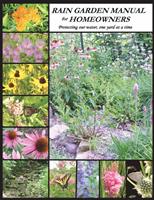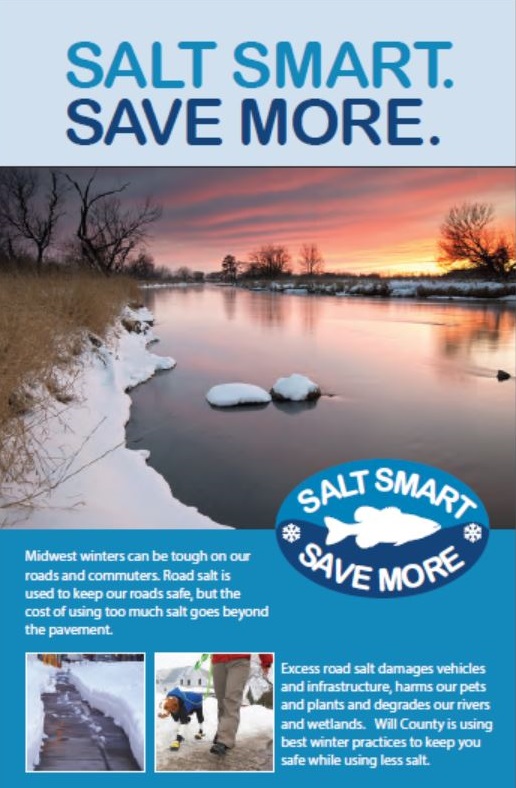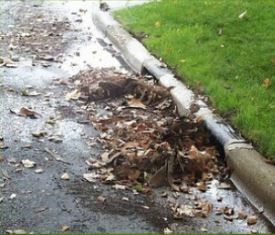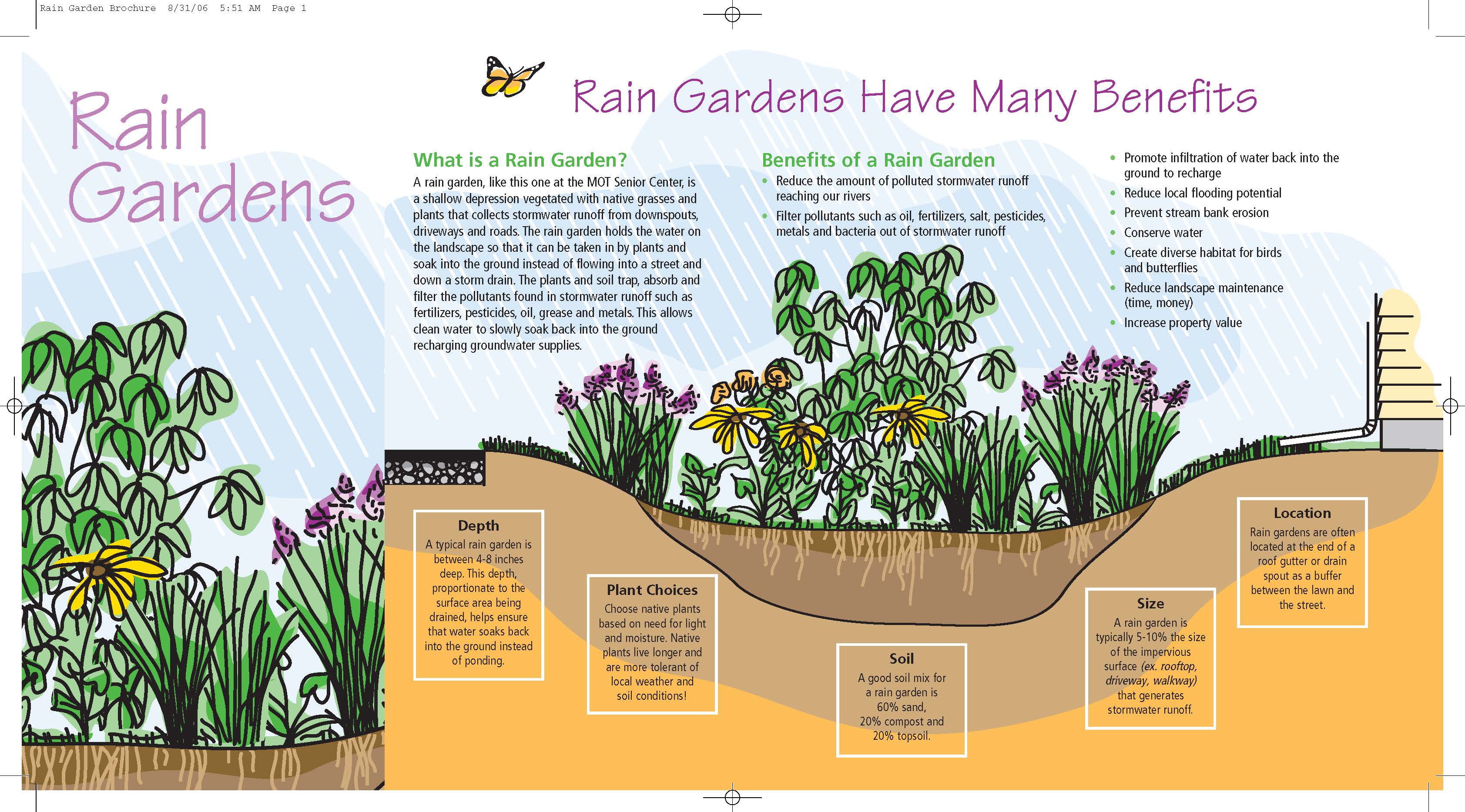KEEP STORMWATER CLEAN
 INTO EVERY LIFE A LITTLE RAIN MUST FALL INTO EVERY LIFE A LITTLE RAIN MUST FALL
A light rain may soak into the ground and go unnoticed but a strong storm or quickly melting snow is another story. This water flows from rooftops, over paved areas, bare soil, and sloped lawns. As it flows, stormwater runoff may collect and transport animal waste, fertilizers, litter, pesticides, salt, oil & grease, soil and other potential pollutants.
When rain and snowmelt wash pollutants from lawns, streets, construction sites, and other land into storm sewers and ditches, these contaminants pollute streams and rivers. Storm sewers are not subject to water treatment.
Polluted stormwater degrades our streams, lakes, rivers, wetlands and other waterways. Nutrients such as phosphorus and nitrogen can cause the overgrowth of algae resulting in oxygen depletion in waterways. Toxic substances from motor vehicles and careless application of pesticides and fertilizers threaten water quality and can kill fish and other aquatic life. Bacteria from animal wastes and improper connections to storm sewer systems can make lakes and waterways unsafe for wading, swimming and fish consumption. Eroded soil is a pollutant as well. It clouds the waterway and interferes with the habitat of fish and plant life.
A sanitary sewer system and a storm sewer system are not the same. Water that goes down a sink or other inside drain flows to either a wastewater treatment plant or to a septic system for treatment. Storm sewer flows are not treated. Water that flows down driveways, streets, and outside areas into a storm sewer or ditch flows directly to nearby creeks, fish and wildlife habitats, downstream recreational areas, and drinking water supplies.
Examples of common pullutants found in storm sewers, streams, rivers and waterways include the following:
- Lawn chemicals (fertilizers and pesticides)
- Soil (erosion)
- Litter
- Animal waste
- Motor oil
- Antifreeze
- Grass clippings
- Soap from DIY car wash
- Sediment from construction projects
To view a quick video on the topic, click: https://www.youtube.com/watch?v=E6Ypmq-8TFU
Any type of surface water can contribute to pollution: Rainfall is not the only runoff water that can run into the storm sewer and collect in the stormwater system. For example, when you wash your car on the driveway, that water, dirt, and grime ends up in the storm drain. That's why we need to be careful with what we put into the storm sewers as traces of all this material can travel through the stormwater system and end up in our local waterways.
Tips to prevent stormwater pollution (spoiler - some of these could save you money)
1. Remember only rain belongs in the drain!
2. Use lawn and garden chemicals sparingly. Choose organic alternatives. Compost has been shown to grow healthier, pumper veggies. Click here to see our page on starting a compost!
3. Mow the lawn less often. Try to keep the lawn about 3 inches high to minimize weed growth, reduce the need for watering, and decrease the likelihood of pests. Leaving the clippings on the lawn can also help block weeds and retain moisture.
4. Sweep your sidewalks and driveway rather than hosing them down.
5. If you must water, water by hand or use a timer on your sprinkler to reduce overwatering. This will save water, time and money.
6. Plant native plants, low maintenance plants and grasses. They often have longer root systems, which reduce the amount of chemicals and water needed. Try seeding your lawn with Buffalo Grass (Bouteloua dactyloides) or Northern Dropseed (Sporobolus heterolepis). For native plant listings, try http://www.wildflower.org/plants or http://plants.usda.gov/java
7. Clean up pet waste. Place it in the garbage.
8. Use a car wash where the water is cleaned and reused. If you must wash your car at home, do it over the lawn or on gravel. Dirt and automotive grime will be better neutralized than when deposited directly on driveway or street surfaces. Use phosphate free, biodegradeable or non-toxic soap.
9. Keep your car well-maintained. Fix any leaks promptly and clean up spills (kitty litter and oil dry can obsorb the spill and be placed in the garbage). If you do maintenance yourself, please check the calendar of green events for Spring and Fall one-day Household Hazardous Waste collection events or visit the G
reen Guide Database on this website for a list of automotive shops that allow anyone to return motor oil throughout the year.
10. Consider disconnecting part of one or more of your downspouts and replacing them with a rain barrel. Direct water to a rain garden.
11. Minimize salt use during snow and ice events. Choose environmentally friendly alternatives, such as beet juice, when possible.
12. Never drain a pool, spa or fountain into the storm drain. As a general rule, a resident should not pour anything into a storm drain. It is meant for rain water only and chlorinated or other chemically infused water can become a pollutiant to the fish and wildlife downstream.
13. Consider minimizing paved or impervious surfaces around your home. Use stepping stones, bricks, gravel or pervious pavers for walkways and patios. Decks should drain between boards allowing the soil to soak in the rain, replentishing ground water supplies.
14. Keep septic systems well-maintained to prevent leaks. A leaking septic system can leach harmful bacteria into storm sewer systems and local waterways. It is important to keep your system well-maintained to prevent costly repairs as well.
For additional information, see the articles listed below:
Clean Water is Everybody's Business - curtesy of the USEPA
   
Rain Garden Manual for Homeowners - curtesy of the Geauga Soil and Water Conservation District
 The Lower DuPage River Watershed in cooperation with The Conservation Foundation and Bluestem Communications has three information pieces for communites to utilize to educate residents on best practices during the Fall, Winter and Summer Seasons: The Lower DuPage River Watershed in cooperation with The Conservation Foundation and Bluestem Communications has three information pieces for communites to utilize to educate residents on best practices during the Fall, Winter and Summer Seasons:
©2010 Will County EEC. All Rights Reserved | Web site design and development by Americaneagle.com
|